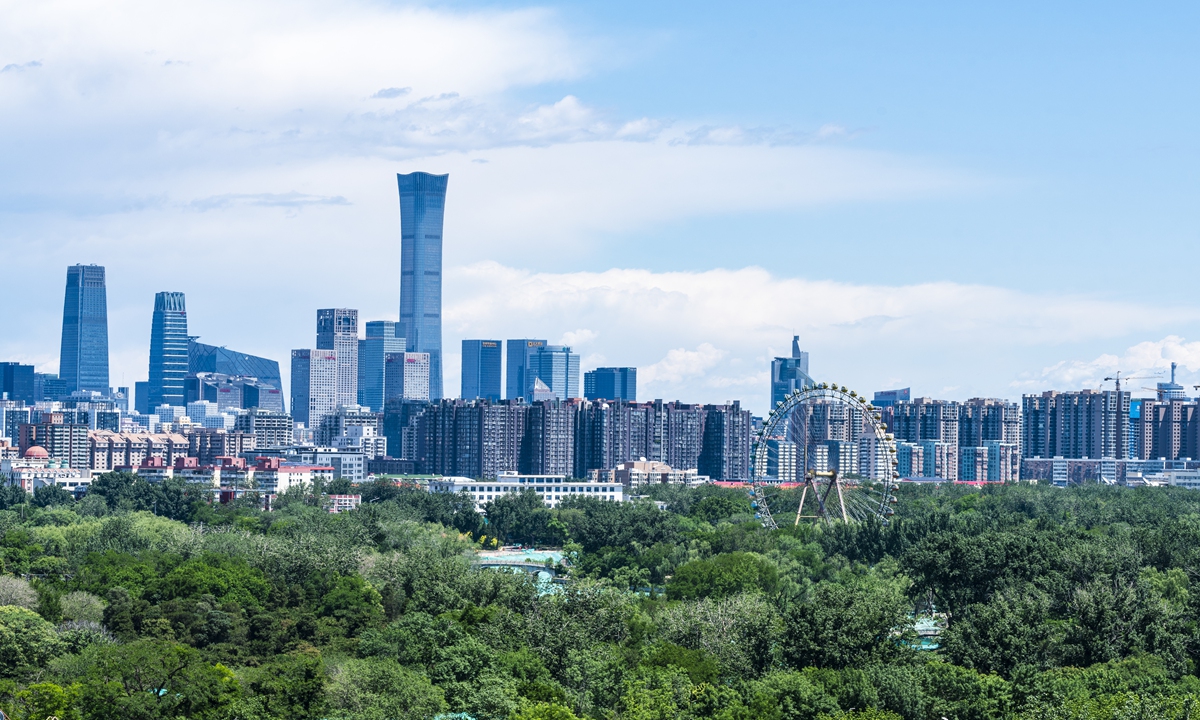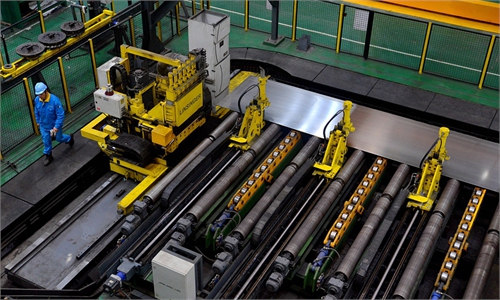Economist suggests China introduce revitalization plan to steer economy back on path to expansionary growth

A view of the skyline of Beijing’s CBD area Photo: VCG
China needs to introduce an economic revitalization plan that combines stimulus and reform measures to steer the economy back toward a path of expansionary growth, Liu Shijin, former vice minister of the Development Research Center of the State Council, proposed at the third-quarter forum of the China Macroeconomy Forum on Saturday.
Liu suggested that China should primarily raise funds by issuing ultra-long-term special treasury bonds, with the goal of generate a stimulus of no less than 10 trillion yuan ($1.42 trillion) within one to two years, Chinese financial news site cls.cn reported.
Liu emphasized that the stimulus package should address gaps in basic public services, focusing on two areas. First, it should improve services for new citizens, such as affordable housing, education, healthcare, social security, and pensions. In the short term, this could involve government purchases of unsold housing, converting them into low-income housing for new citizens.
Second, the package should accelerate the development of small and medium-sized cities within metropolitan areas, driving a second wave of urbanization in China and fostering a high-quality, sustainable modern urban system that integrates urban and rural development.
Liu, a former member of the Monetary Policy Committee of the People's Bank of China, has offered many important suggestions for China's economic policy making through his research and insights across various fields.
While it is hard to tell whether there would be such a large-scale stimulus, Liu’s suggestion still conveys important signals about future economic stimulus, Zhu Keli, founding director of China Institute of New Economy, told the Global Times on Saturday.
Expectations for a stimulus in China are growing, particularly with a focus on infrastructure and public services investments, which would not only help boost the economy in the short term, but also lay a foundation for long-term development, Zhu said.
Since the ultra-long-term special treasury bonds will not be included in the budget deficit, and are more flexible in project approval, issuance and use, such bonds are expected to play a bigger role in supporting economic stimulus in the future.
China has announced plans to issue 1 trillion-yuan ultra-long-term special bonds this year, with more to follow in coming years, according to this year's Government Work Report. The terms of such bonds are ranged from 20 years, 30 years, and 50 years.
Liu also emphasized that China should not merely replicate the quantitative easing policies of developed countries. The reason lies in the differences between our country and developed economies in terms of the role of macroeconomic policies.
Developed economies are mature and characterized by slow, maintenance-type depreciation with limited new growth potential. So changes in macroeconomic policies often determine the overall direction of economic growth. But China is still in a stage of medium-speed growth. During periods of high- and medium-speed growth, the primary function of macroeconomic policy is to maintain stability and balance in economic operations, he said.


